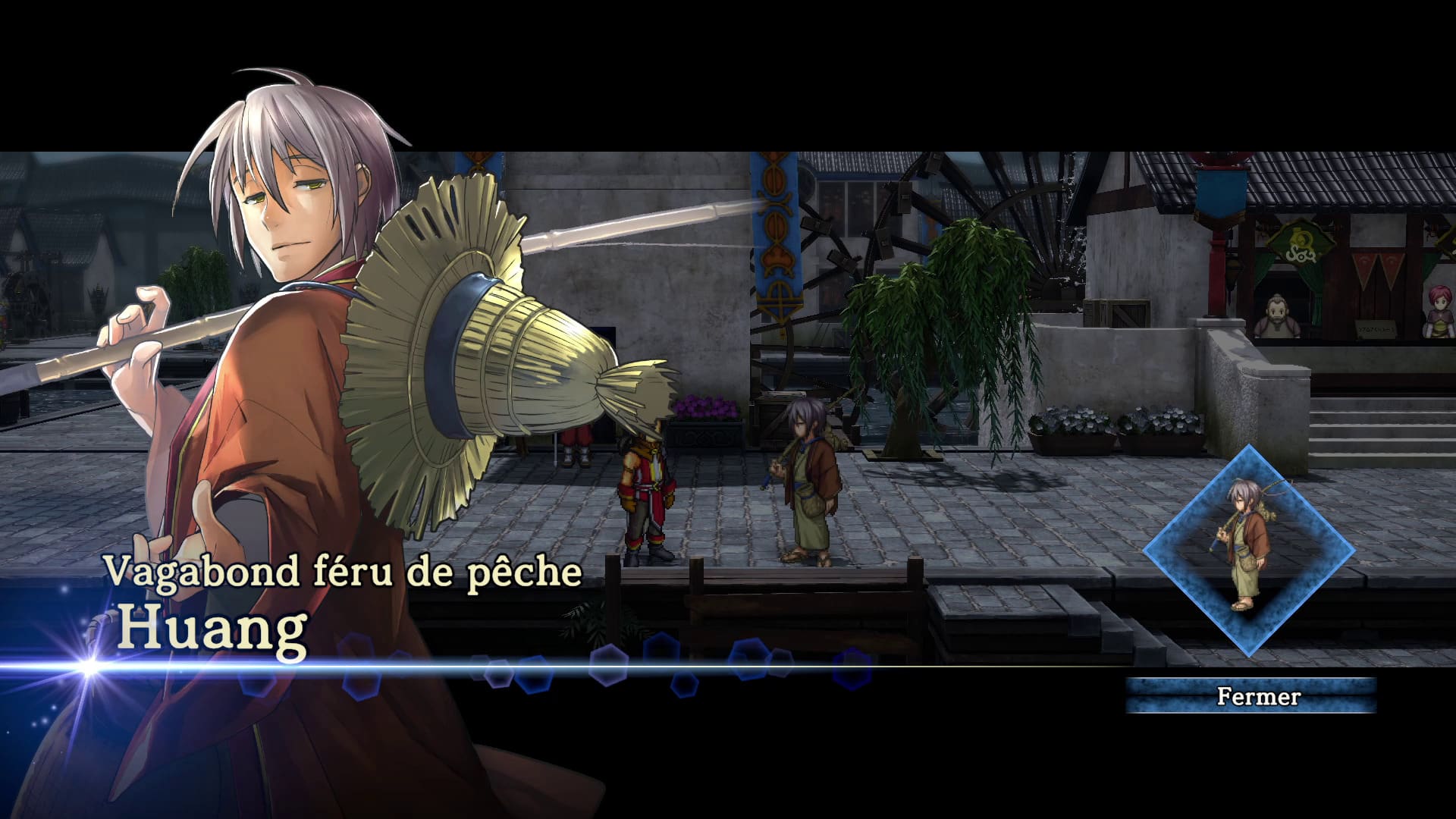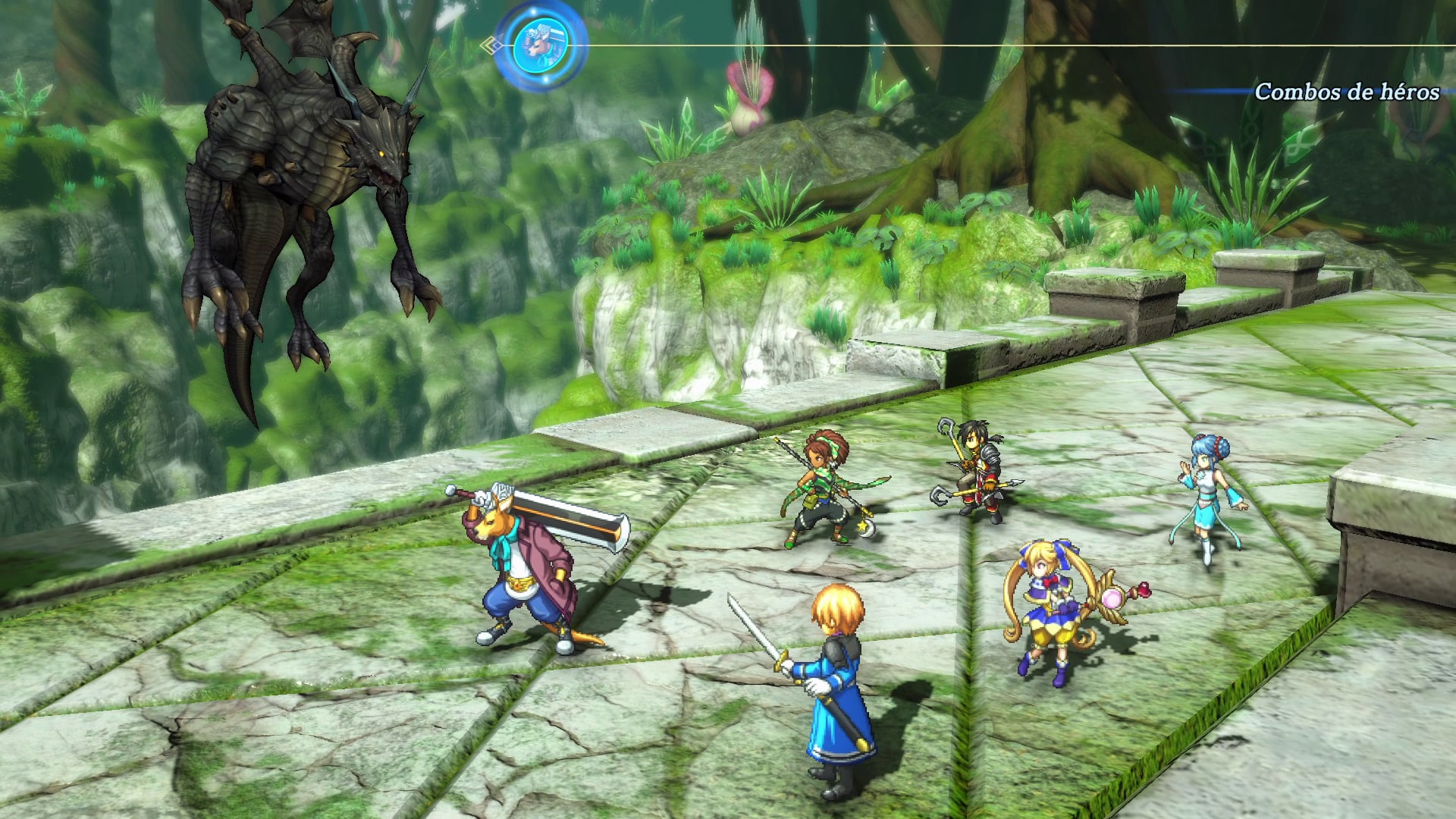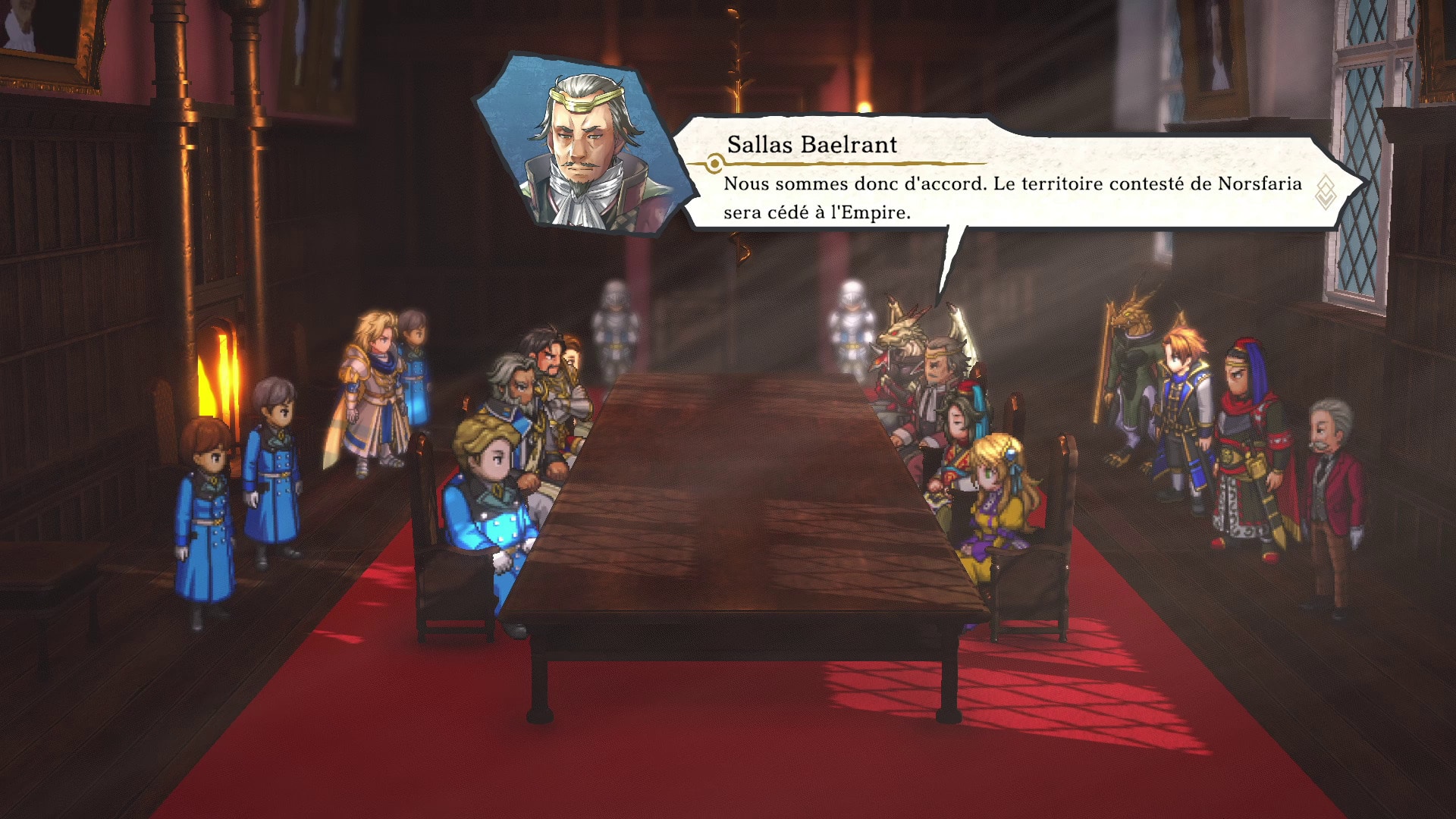When Konami decided to no longer exploit its legendary licenses in order to concentrate on pachinko and mobile games, the historic developers of the license Suikoden decided to fill this void in 2020 by launching a Kickstarter campaign to Eiyuden Chronicle: Hundred Heroes. The phenomenal enthusiasm for crowdfunding demonstrated that fans were waiting for a title of this caliber and nothing else offered. 4 years later, the game is finally available and despite some major weaknesses, we are before the worthy heir of the games Suikoden.
Advertisement
Testing conditions: We completed the game on PC via Steam with Japanese voices only. We haven't recruited all the available characters, but we have a large portion of them.
A story that hides 100 others
Eiyuden Chronicle: Hundred Heroes revives the emblematic formula of the Suikoden series, which shone on PlayStation 1 and PlayStation 2, and whose absence was felt in the world of JRPGs due to its unique character. Unlike traditional Japanese RPGs, which generally immerse us in an adventure with a small group of heroes, this game takes us into a large-scale political conflict, enriched by a fleshed-out narrative thanks to its hundreds of recruitable characters, each with their own own story.
Although the Rabbit & Bear studio features a trio of heroes, the story mainly follows Noah in the Allraan region. Active in the research of technologies amplifying the magic of runic lenses – objects offering various powers – the Galdean empire surprises all the nations by submitting them one after the other. Faced with this threat, a resistance called “the Alliance” emerges. To consolidate his forces, Noah will become the leader of this coalition and embark on a quest to rally new allies across the kingdom.
Although the main plot ofEiyuden Chronicle: Hundred Heroes is captivating enough, we expected much more from this one given that it takes the time to settle in by introducing us to the various key nations and political maneuverings leading up to this war, eventually adopting a very classic plot similar to that of many other JRPGs. On the other hand, where we can pay tribute to the late Yoshitaka Murayama, it is in the game's exceptional world-building. The latter presents a wealth of cultures and races which creates a fascinating and pleasant universe to explore.
Advertisement
These design elements contribute to an impressive diversity among the characters that can be recruited, each bringing their own story. Ultimately, it is these little individual stories of the members of the Alliance that make the journey through Eiyuden Chronicle: Hundred Heroes so pleasant. Additionally, the entire cast benefits from high-quality Japanese voice acting that brings each character to life. We recognize big names in the industry if you are used to Japanese voices in games and anime.
Recruit them all

Eiyuden Chronicle: Hundred Heroes takes heavy inspiration from retro JRPGs in its gameplay mechanics, with city and dungeon explorations on a vast world map, random combat, and turn-based clashes. However, the title stands out for its in-depth exploration that constantly encourages us to recruit new companions to develop our field.
As leader of the Alliance, you start with a ruined castle and a small group of followers. As you recruit more people, it becomes possible to improve your base and access new services. Many characters ask for specific favors to join your cause, whether that's acquiring certain resources, reaching a specific stat level, or retrieving an item from a monster. This recruitment race both thrills the collector in us while allowing us to benefit from a rise in power which makes our adventure much more comfortable.
The most telling example is when you obtain the member with the ability to teleport, thus saving a lot of time when moving, which is quite sluggish at the start of the game. In your squad of six fighters, you also have the possibility of integrating a support character who offers unique and often very useful passive abilities, such as the possibility of doubling gold gains or speeding up your movements.
The vast choice of characters allows complete freedom in the composition of your team, although certain key passages of the story dictate specific members. The turn-based combat remains quite traditional, but the constitution of the team is constantly renewed thanks to the arrival of new members who make it possible to create various synergies. The combat system is also enriched by a multitude of special combos, which can only be triggered by the combination of two or three specific characters.
A rich but often clunky JRPG

A bit like Final Fantasy VII Rebirth recently, Eiyuden Chronicle: Hundred Heroes aspires to offer as varied a gaming experience as possible, however Rabbit & Bear has not managed to achieve the same level of polish. The JRPG thus offers a myriad of mini-games including Beyblade-style top battles, card duels, and even boat races on sand. Unfortunately, all of the activities turn out to be quite anecdotal and don't really make you want to dive into them more than once. This cruel lack of refinement underlines the overly high ambitions of the project, which seem to have exceeded the studio's capabilities.
Another recurring feature that leaves something to be desired is large-scale battles, where one must strategically move their armies across a gridded battlefield and use the generals' special abilities. Although the idea is interesting, it lacks depth and proves unsatisfying. These sequences quickly become long and monotonous, to the point that we find ourselves sending the troops mechanically. On the other hand, one of the good original ideas of the title lies in the boss fights which require a special interaction to be used at the appropriate time to gain the advantage. We also find the famous one-on-one duels of Suikoden with a rock-paper-scissors system.
To summarize the big flaw of Eiyuden Chronicle: Hundred Heroes is that he did not know how to sufficiently modernize the Suikoden formula to reach the heights that we wanted from him. The graphics perfectly illustrate this mixed criticism with magnificent sprites embedded in decorations that are often uneven and lacking in care. The intention to marry 2D characters with 3D settings is not entirely successful. Even without being visually demanding, it is difficult to fully appreciate the rendering when you have handled titles using the same process brilliantly such as Star Ocean The Second Story R Or Octopath Traveler II.
However, it is essential to recognize Junko Kawano's enormous work on character design. For a game that relies heavily on its casting, it must be admitted that the design of the characters has been careful and contributes greatly to making them endearing. The game's music is also very successful with joint work by Motoi Sakura (Tales of, Valkyria Chronicles, Star Ocean), Michiko Naruke (Wild Arms) and Akira Yamoka (silent Hill) that sparks in all areas, from relaxing exploration music to dynamic battle themes.
